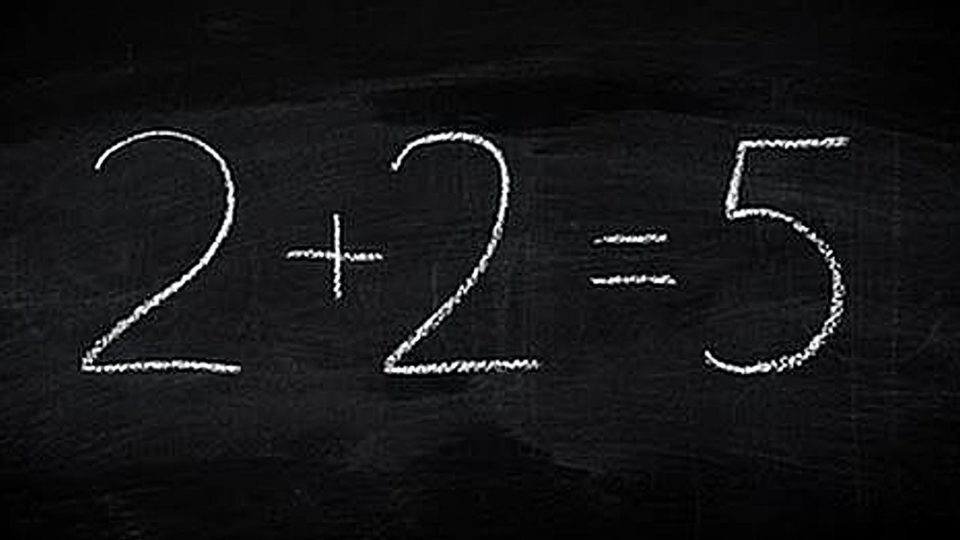A Paper Presented By Mr. Osinachi Bruno Anyanwu At Opinions From Africa Research Department (#ResearchwithPet)- During An Online Conference On Learning Disabilities Encountered By Children.
Host – Jidechukwu Angela Nwabueze
The following are covered is this post:
- Introducing Dyscalculia
- Signs and symptoms
- Causes
- Manifestation in children
- Manifestation in adults
- Managing dyscalculia
- Important note
INTRODUCING DYSCALCULIA
Dyscalculia is a learning disability resulting in difficulty learning or comprehending arithmetic, such as difficulty in understanding numbers, learning how to manipulate numbers, performing mathematical calculations and learning facts in mathematics.
I personally prefer to use the term difficulty instead of disability while explaining dyscalculia because the condition does not totally disable one from carrying out arithmetic rather it slows down the processing of arithmetic concepts.
Dyscalculia is associated with dysfunction in the region around the intraparietal sulcus and potentially also the frontal lobe. Estimates of the prevalence of dyscalculia range between 3 and 6% of the population.
Many studies have found prevalence rates by gender to be equivalent. Those that find gender difference in prevalence rates often find dyscalculia higher in females, but some few studies have found prevalence rates higher in males.
In 2015, it was established that 11% of children with dyscalculia also have ADHD (Attention Deficit/ Hyperactivity Disorder). Mathematical disabilities can occur as the result of some types of brain injury, in which case the proper term, acalculia is to distinguish it from dyscalculia which is of innate, genetic or developmental origin.
SIGNS AND SYMPTOMS OF DYSCALCULIA
The earliest appearance of dyscalculia is typically a deficit in the ability to know, from a brief glance and without counting, how many objects there are in a small group. This brings up the term subitizing, derived from the Latin adjective subitus (meaning “sudden”) and captures a feeling of immediately knowing how many items lie within the visual scene.
Children as young as 5 can subitize 6 objects, especially looking at a dice but children with dyscalculia can subitize fewer objects and even when correct take longer to identify the number than their age-matched peers.
Dyscalculia often looks different at different ages. It tends to become more apparent as children get older; however, symptoms can appear as early as preschool.
Common symptoms of dyscalculia are, having difficulty with mental math, trouble analyzing time and reading an analog clock, struggle with motor sequencing that involves numbers, and often they will count on their fingers when adding numbers.
CAUSES OF DYSCALCULIA
GENETICS: Dyscalculia can be inherited genetically. It can be gotten from parents who have had a history of dyscalculia.
DEVELOPMENTAL FACTORS: Insufficient development of the brain area responsible for arithmetic activities can cause dyscalculia.
BRAIN INJURIES: Arithmetic disabilities can occur as the result of some types of brain injuries in which the area responsible for arithmetic activities are being damaged.
MANIFESTATIONS OF DYSCALCULIA IN CHILDREN
Dyscalculia can manifest in the following ways in children:
- Difficulty stating which of two numbers is larger.
- Visualizing numbers as meaningless or nonsensical symbols, rather than perceiving them as characters indicating a numerical value.
- Difficulty with multiplication, subtraction, addition, and division tables, mental arithmetic, etc.
- Inconsistent results in addition, subtraction, multiplication and division.
- Poor memory (retention and retrieval) of math concepts; may be able to perform math operations one day, but draw a blank the next; may be able to do book work but then fails tests.
- Problems with differentiating between left and right.
- Inability to grasp and remember mathematical concepts, rules, formulae, and sequences.
MANIFESTATIONS OF DYSCALCULIA IN ADULTS
Dyscalculia can manifest in the following ways in adults:
- Mistaken recollection of names, poor name/face retrieval, may substitute names beginning with same letter.
- Inability to concentrate on mentally intensive tasks.
- Having particular difficulty mentally estimating the measurement of an object or distance (e.g., whether something is 3 or 6 meters (10 or 20 feet) away).
- Difficulty reading musical notation.
- Difficulty working backwards in time (e.g. what time to leave if needing to be somewhere at ‘X’ time).
- Difficulty with time, directions, recalling schedules, sequences of events, keeping track of time, frequently late or early.
- Inability to comprehend financial planning or budgeting, sometimes even at a basic level; for example, estimating the cost of the items in a shopping basket or balancing a checkbook.
- May affect the ability to carry out some activities such as driving, biking, and sailing as these activities involve a great deal of calculations.

MANAGING DYSCALCULIA
There is no cure either medicinal or surgical for permanently getting rid of dyscalculia. Therefore different measures can help to limit the effects of this condition and ensure adequate wellbeing. For children, teachers, parents and caregivers should do the following:
- Adopt a more illustrative method in teaching arithmetic to children with dyscalculia. Such methods may include using objects such as bottle tops and broom sticks to represent numbers in counting.
- More time and efforts should be put in particularly in calculated activities.
- They should not mount so much pressure on them and should totally avoid verbally or physically punishing these kids for taking longer time in solving arithmetic than other kids.
Adults should imbibe the following:
- Measures that will aid in their schedules and planning such as setting alarms and reminders for schedules of their various events. They should also constantly take note of things and events, as their note pads should be their companions always.
- They should constantly seek advice and guidance from experts before venturing into businesses or financial commitments to avoid failures and bankruptcy.
- They can set their clocks and wrist watches some minutes earlier than the normal time to reduce their rate of late coming to events.
IMPORTANT NOTES
- About 99% of us hated mathematics at one point of our lives, that doesn’t make us all dyscalculic. Therefore, to be certain one has to implore either achievement tests, I.Q tests and teachers evaluation tests to ascertain whether the difficulty is as a result of dyscalculia or not.
- Dyscalculia exists across every I.Q range. This implies that one with dyscalculia is not less intelligent than others rather, the take longer time in comprehending arithmetic.
- Difficulties in arithmetic related activities can be as a result of co-morbidity (i.e. coexistence) with other disabilities/difficulties such as ADHD and Dyslexia. Therefore not all difficulties in learning arithmetic is as a result of dyscalculia alone.
Continue reading on Dysgraphia





1 comment
[…] Continue reading on Dyscalculia. […]